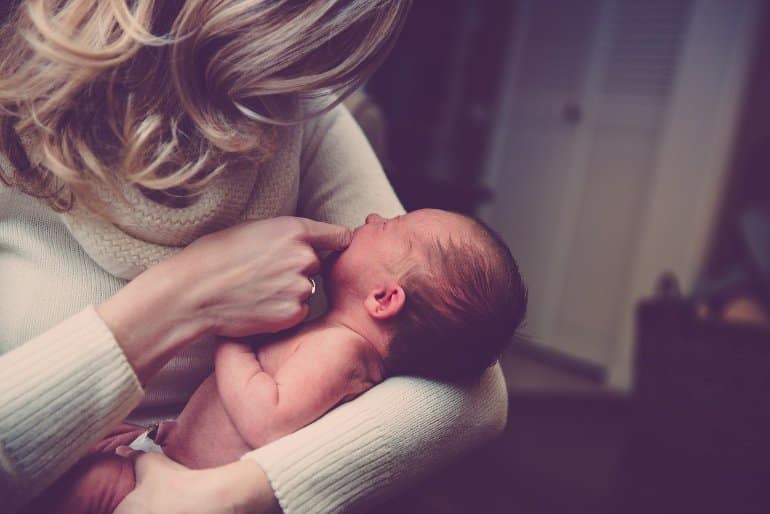A new study has shown that sleeplessness or lack of sleep within the first six months of delivering a baby might affect the biological age of new mothers drastically. Experts who have been involved in the study have said that poor sleep or lack of sleep can add up to seven years in the biological age of new mothers. Experts have said that the findings of the new study show that new mothers who complain of having sleepless nights after having a baby has changed their life forever are not a myth. The authors of the study have said that lack of sleep after delivering a baby can put new mothers at a higher risk of cancer and cardiovascular diseases as well. Scientists who have been a part of the study have enrolled around 33 mothers, who have been in the age range of 23 to 45 years. They have studied them during their pregnancies and the first year of their motherhood. They have evaluated their biological age with the help of their DNA, which usually differs from chronological age. At the end of the study, the authors of the study have said that after one year of giving birth, the biological age of new mothers who have been sleeping less than for seven hours during night at the six-month mark has been three to seven years older than those mothers who have said that they have been sleeping for more than seven hours.
Health experts who have been involved in the study have said that new mothers who have been taking less than seven hours of nap after giving birth have been found to have shorter telomeres that are also known as pieces of DNA in their white blood cells. The authors of the study have said that shorter telomeres are linked to many other severe health issues. The lead author of the study professor Judith Carroll from the University of California in Los Angeles has said that sleep health is as crucial to the overall health of people as to diet and exercise. The findings of the new study have been released in the journal called Sleep Health. The lead author of the study has claimed that early months of postpartum sleep deficit might have a long-term adverse impact on the physical health of new mothers. Many studies have proved that there is a growing body of evidence that shows that sleeping less than seven hours per night is damaging to the overall health of the general population. It can shoot up the risk of age-related ailments, said the experts. The average sleep duration of participants has ranged from seven to nine hours in the study. On the other hand, Experts have seen that more than half of participants have been taking less than seven hours of sleep after both six months and one year of having a baby. The lead author of the study has said that new mothers should grab opportunities to have some extra sleep after giving birth. New mothers should try to take naps during the daytime when their babies are sleeping. These mothers should try getting some help from friends and family as well whenever it is possible. New mothers should share the burden their partners to take of the baby during the night and early morning.
Professor Judith Carroll works as an associate of the Cousins Center for Psychoneuroimmunology at the University of California’s Jane and Terry Semel Institute for Neuroscience and Human Behavior. The co-author of the study, Dr. Christine Dunkel Schetter has said that though rapid biological aging associated with sleep loss might shoot up health risks among women, it might not automatically lead to any damage to their bodies. Christine Dunkel Schetter is a renowned professor in the department of psychology and psychiatry at the University of California, Los Angeles (UCLA). The co-author of the study has said that the findings of the study do not suggest that lack of sleep and infant care will permanently damage the overall health of new mothers. In some cases, the effect of loss of sleep might not be long-lasting. The authors of the study cautioned that with higher biological or epigenetic age, the risk of other health issues as well shoots up. Professor Judith Carroll has found during the study that with each additional hour of sleep, the biological age of mothers has been found to be younger. The authors of the study have analyzed DNA changes with the help of advanced scientific methods to examine epigenetic aging. Christine Dunkel Schetter has said that DNA offers the code for the secretion of proteins that are responsible for many functions in the cells of the human body. She has said that epigenetic highlights whether areas of this code are open or closed. Many other experts have said that there is a need for further large-scale studies to verify the findings of the study. The current study does not include a large representative sample of women, said the experts. More studies might help experts understand the effect of sleep loss on the overall health of new mothers. Dr. Carroll and Christine Dunkel Schetter have earlier found that mothers’ stress before the delivery of a baby might adversely affect the biological age of the child as well. Experts have said that accelerated biological aging of infants is a type of intergenerational transfer of health risk. Experts from the Department of Psychology, the Department of Psychiatry and behavioral sciences, and the department of human genetics and biostatistics at the University of California as well have contributed to the study. Scientists from the Psychology Department of the University of Colorado at Colorado Springs as well have been a part of the new study. As per the report, the study has been funded by the National Institute of Aging and the Eunice Kennedy Shriver National Institute of Child Health and Human Development. These two institutes are part of the National Institutes of Health (NIH).
